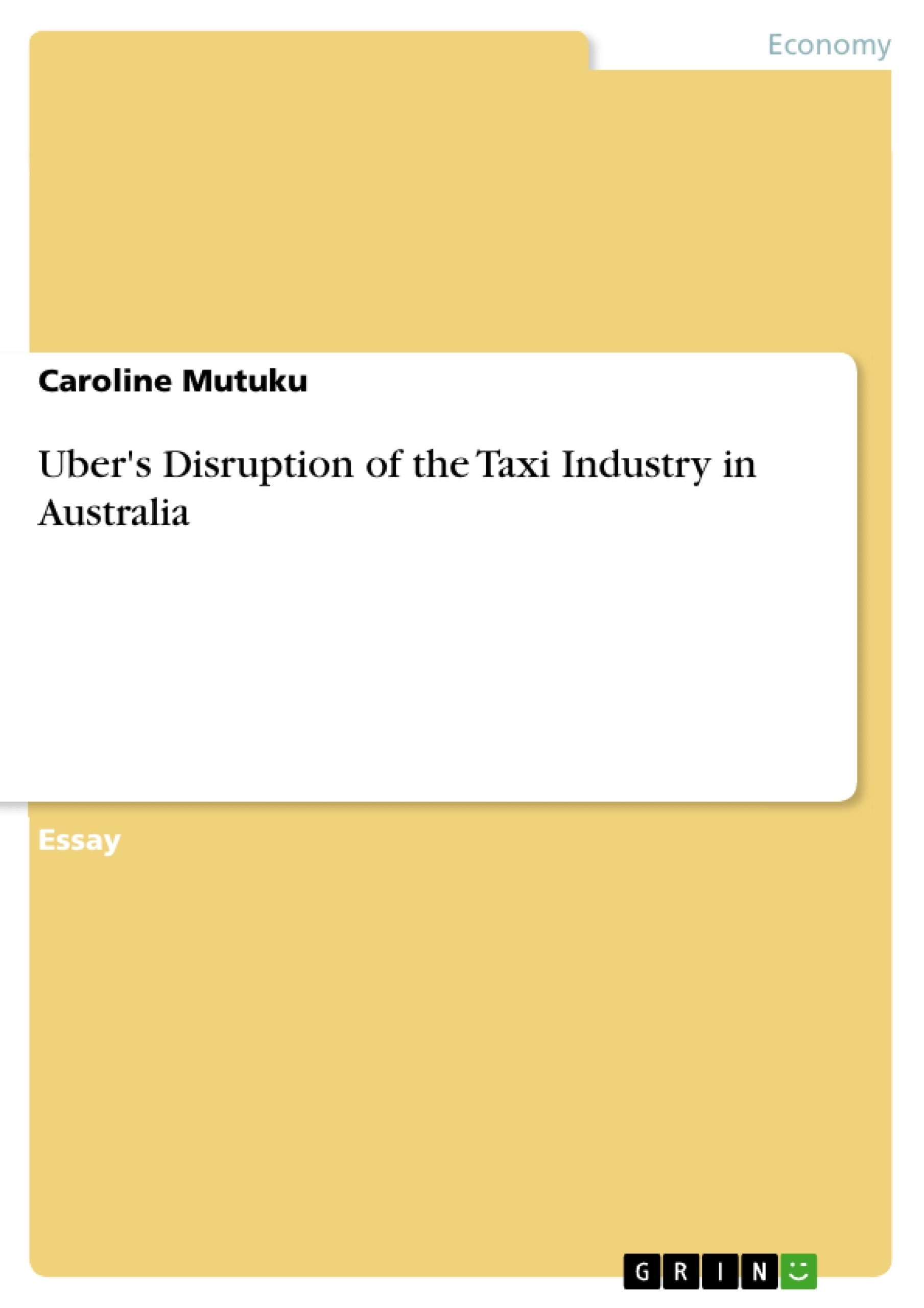Uber has disrupted the Australian Taxi industry by dominating the market because it is easy to access and it is also cheap compared to other transport services such as the taxis. This ride sharing business is well funded by the entrants hence challenging the taxi industry. The taxi drivers are concerned that Uber are not regulated (not bound by the same taxi regulatory structures) implying that they are able to compete in uneven playing field thus getting a competitive advantage over the taxi drivers. The taxi drivers argue that Uber drivers escape the regulatory costs hence making them illegal or unfair in the taxi industry. As a result, this ride sharing business is disrupting the taxi industry according to most of the incumbents in these industries.
Inhaltsverzeichnis (Table of Contents)
- Introduction
- New Reforms to Mitigate Technology Disruption
- The societal changes that have enabled the rise of ride-sharing businesses such as Uber
- Conclusion
Zielsetzung und Themenschwerpunkte (Objectives and Key Themes)
This text examines the impact of ride-sharing services, particularly Uber, on the Australian taxi industry and the government's response through regulatory reforms. It explores the factors contributing to the rise of ride-sharing, analyzes the economic and social implications of this disruption, and assesses the effectiveness of the new regulations.
- The impact of Uber on the Australian taxi industry
- Government reforms to regulate ride-sharing services
- Economic and social consequences of ride-sharing
- The sharing economy and its impact on various industries
- The role of technology and innovation in shaping the transport sector
Zusammenfassung der Kapitel (Chapter Summaries)
- Introduction: This section introduces the concept of ride-sharing services and how Uber has disrupted the Australian taxi industry. It highlights the concerns of taxi drivers regarding unfair competition due to Uber's lack of regulation.
- New Reforms to Mitigate Technology Disruption: This chapter discusses the government's response to the disruptions caused by Uber. It focuses on the compensation schemes implemented in New South Wales and the Australian Capital Territory to support taxi drivers affected by the rise of ride-sharing.
- The societal changes that have enabled the rise of ride-sharing businesses such as Uber: This chapter explores the societal factors that have facilitated the growth of ride-sharing services in Australia. It examines the rise of the sharing economy, consumer demand for low-cost services, and the increasing living standards as key contributors.
Schlüsselwörter (Keywords)
The text focuses on the themes of ride-sharing, technology disruption, government regulation, the sharing economy, compensation schemes, economic impact, and social implications. Key concepts include Uber, taxi industry, regulatory reforms, consumer demand, economic growth, and employment opportunities.
Frequently Asked Questions
How has Uber disrupted the Australian taxi industry?
Uber dominated the market by offering easier access and lower prices compared to traditional taxis, creating a competitive challenge for incumbents.
What are the main concerns of Australian taxi drivers regarding Uber?
Drivers are concerned that Uber operates on an uneven playing field because it is not bound by the same regulatory structures and costs as the taxi industry.
What reforms have been introduced to mitigate this disruption?
Governments in New South Wales and the ACT have implemented compensation schemes and regulatory reforms to support taxi drivers affected by ride-sharing.
What societal changes enabled the rise of ride-sharing?
The rise of the sharing economy, consumer demand for low-cost services, and technological innovation have been key facilitators.
Is ride-sharing considered legal in Australia now?
Yes, through various state reforms, ride-sharing has been integrated into the legal transport framework, though debates on fairness continue.
- Arbeit zitieren
- Caroline Mutuku (Autor:in), 2018, Uber's Disruption of the Taxi Industry in Australia, München, GRIN Verlag, https://www.grin.com/document/432473



